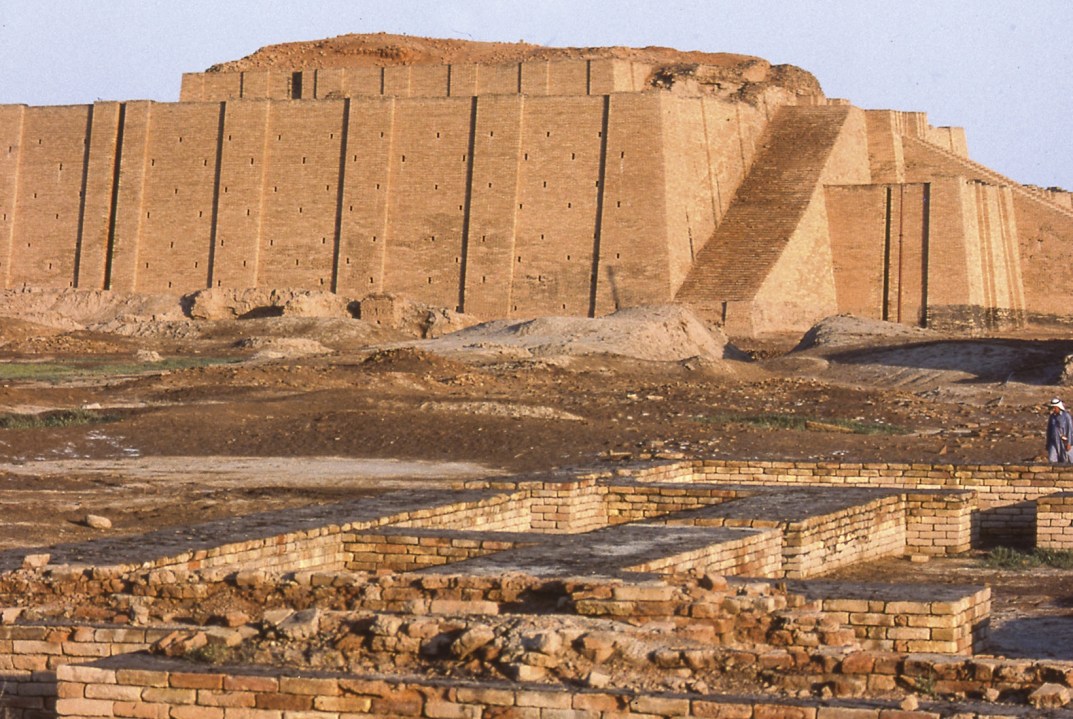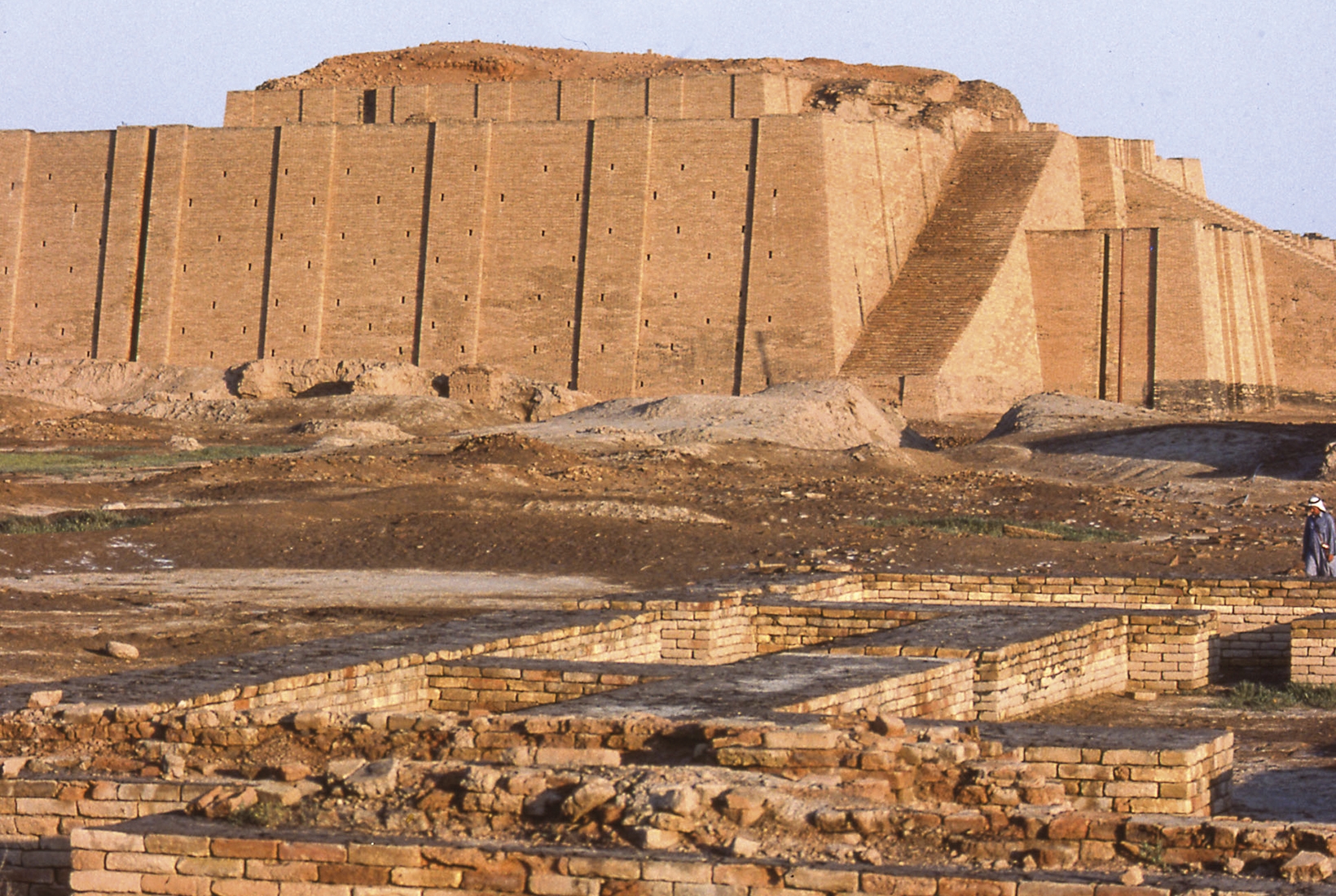What have the Akkadians ever done for us? As it turns out, rather a lot, as Philip Matyszak reveals in this lively, handsomely produced study of peoples and tribes whose PR departments were a smidgeon less muscular than the Romans’. Their obscure names are woven into our language: we sing ‘Land me safe on Canaan’s side’; we talk of oligarchs as ‘rich as Croesus’; we quote the Assyrian coming down ‘like the wolf on the fold’; and the aesthete’s go-to insult, ‘philistine’. Their stories, however, are not, and this book attempts to fill in the gaps.
Given the scale and general lack of evidence, there’s a broad-brush approach; but this is more than made up for by a highly engaging style. The first known city was Uruk, built in 3500 BC. The capital of the Akkadian empire, it was later ruled by Sargon, whose story closely resembles that of Romulus and Remus — ‘though apparently Sargon grew up a gardener, while the founders of Rome began their careers as shepherds’. We still can’t find the city of Akkad — a reminder of the amount of stuff that we will probably never know. But the Akkadians were responsible for how empires were structured, and their imprint looms large.
The scale of endeavour and civilisation is vast. I am used to dealing with Greeks and Romans, so feel positively provincial when confronted by Nabonidus, the ‘archaeologist king’ of Babylon. The artefacts he unearthed were even more ancient when he found them than the ruins of his own civilisation are today.
The Bronze Age collapse brought chaos. The Mycenean Greeks and the Hittites, as well as ‘dozens of minor civilisations’, fell like dominos, sending thousands rocketing around the Mediterranean in search of new homes. Many of these led to romantic theories: the mysterious Sea Peoples, for instance, were thought to be Minoans, or even Trojans fleeing the burning city.
The Philistines had a fairly developed culture, so it is unfair to use their name as an insult
The Galatians show just how far people travelled. A Gallic chieftain, Brennus, headed a migration east in 281 BC; the tribes were later thrown out of Macedonia, then fought for the Bithynian king; were terrorised by the elephants of the Seleucid Antiochus I and ended up in the highlands of Asia Minor, where they settled and corresponded with St Paul. The famous statue of the Dying Gaul is of a Galatian. The Alans, meanwhile, sprang from north of the Black Sea, and then could be found in ‘Brittany, Spain,
Africa, Italy, southern Russia and possibly even China’, as guards of the emperor.
The warlike Assyrians are a menacing presence. They certainly didn’t pull any punches. One often quoted inscription of the Assyrian king Tiglath Pilesh reads:
I gathered my chariots and warriors… I went to the country of the Arameans… [whom] I smote. I slew their warriors and carried off their goods, their wealth… I crossed the Euphrates after them… I burnt them with fire, destroyed and overthrew them.
But he wasn’t entirely successful in his destruction; the nomadic Arameans (whose language Jesus is thought to have spoken) still exist today.
Of similar longevity are the Samaritans. Neither Jew nor Gentile, they posed a problem, yet this intermediacy seems to have given them strength, as a small number are also around today. The Philistines were hated by the Israelites; but recent archaeological finds show that they had a fairly developed culture, so it’s unfair to use their name as an insult. I shall have to adopt ‘troglodyte’ instead.
As for ordinary Romans, far from being destablised by waves of Visigoths, Ostrogoths and Vandals, ‘the main difference between Italy ruled by Ostrogoths and Italy under the last emperors was that Ostrogothic Italy was much more peaceful’. People on the street barely noticed the change: one ruler who taxed you was much like another.
Matyszak provides many fascinating nuggets of information — about the Dacians, for example, a tribe whom the Romans wanted to conquer from ‘pure exasperation’; or the Germanic Cananefates, whose name means ‘something like ‘‘the leek kings”’. The legend of Midas and his golden touch was based on
the Phrygian king Mita; the river that flowed through his lands was so rich in electrum deposits that the lucky downstream ruler became fabulously wealthy. His name, of course, was Croesus. Vercingetorix, the Gaulish chieftain, really did lead a nationalist uprising against the Romans. But I’m still holding out for evidence of an indomitable Gaul named Asterix.
Out of the scattered fragments of myth, legend and archaeology, Matyszak builds a compelling narrative of displacement and power at the edges of human knowledge. And it’s a welcome tonic to be reminded that humanity has faced a lot worse than a virus, and come through it, still farming, still building, still fighting.







Comments